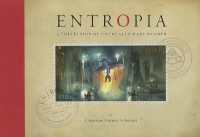- ホーム
- > 洋書
- > 英文書
- > Politics / International Relations
Full Description
Public Administration, Civic Engagement, and Spanish-Speaking Communities builds on and develops ideas and issues discussed at the first bilingual (Spanish-English) special session at the National Academy of Public Administration's (NAPA) 2022 Social Equity Leadership Conference (SELC) hosted by the Masagung Graduate School of Management at the University of San Francisco. This book explores issues of social equity in public service for Spanish speaking communities and how these communities experience social inequities that negatively impact the creation and sustainability of their meaningful inclusion and democratic participation in civic and public life.
This book addresses the lack of voices and perspectives from Spanish speaking communities in mainstream discourse and practice of social equity in public administration by inviting those voices to elucidate the issues, their contexts, and significance. Part 1 provides foundations and context in social equity, language access legislation and policies, English-Spanish translation and interpretation, nuances about the diversity of Spanish speaking communities as well as of the Spanish languages, the roles of the nonprofit sector and civil society organizations to compensate for market and government failures resulting in inequities, and relevant ethical considerations. Part 2 addresses communication, information, and disinformation (news, social media, and government communication). Part 3 addresses Hispanic/Latino intersectional identities and social equity including issues of race, gender, status, and the human service delivery. Part 4 examines specific topics in social equity (such as homelessness, healthcare, voting and civic engagement, criminal justice, and crisis recovery information). Part 5 provides a number of innovative applications, case studies, and teaching tools for students, academics, and practitioners.
Contents
Introduction
Chapter 1. The Social Construction of [American] Identity and Language in the Public Sphere; José Luis Irizarry, Michelle D., Zack Ridder, and Angel Emmanuel Jaimes-Valdez
Chapter 2. Nonprofits and Civil Society: Fostering Social Equity and Civic Engagement; Michelle D. Evans
Chapter 3. News, Social Equity, And Spanish Speaking Communities: The Importance of Traditional News Formats in an Era of Nontraditional News Providers; Jason R. Piscia
Chapter 4. Social Media, Social Equity, and Spanish Speaking Communities; Jourdan A. Davis, Danielle "Dannie" Kyle, and José Luis Irizarry
Chapter 5. Local Government Engagement with Latinx and Spanish-Speaking Communities; Leonor Camarena, Nicole Humphrey, Angel Molina Jr., and Shannon Portillo
Chapter 6. Health and Human Service Delivery, Social Equity, and Spanish Speaking Communities; Luis R. Alvarez-Hernandez, Ramón Ruiz, and Vanessa Diez
Chapter 7. Homelessness, Social Equity, and Spanish Speaking Communities; Paige Laine Moore and Hillary J. Knepper
Chapter 8. Latinxs Interactions with the Police Agencies in the United States: A Systematic Quantitative Literature Review; David Topel and Roddrick Colvin
Chapter 9. Immigration Law, Social (In)Equity, and the Immigration-Crime-Nexus; Krystlelynn Caraballo, Daniela Mora, and Anthony Peguero
Chapter 10. Civic Engagement and Social Equity: Democracies, Voting, Political Systems and Spanish Speaking Communities; Emiliano Vera
Chapter 11. A Study of Equitable Access to Crisis Information for Latino Populations; Brittany "Brie" Haupt, Jason D. Rivera, and Claire Connolly Knox
Conclusion: Putting It Together and Looking Forward; José Luis Irizarry
Appendix A: Implicit Bias and Implications for Social Equity: A Reflexive Written Activity; José Luis Irizarry
Appendix B: Academic Engagement Through The Rios Laboratory: An Equity Model for Inclusion in Research; Juan A. Rios, Amml Hussein, Priscilla Carmona, Allison Joseph, Resia-Maria Cooper, and Hongyi "Bruce" Yu
Appendix C: A Reflexive, Mindfulness-Based, Social Equity Learning Activity: Multimedia Expression and Communication Connecting Historical, Political, and Societal Topics with Art, Music, And Public Service; José Luis Irizarry
Appendix D: #SELC2022 Conference Program Selected Excerpts








